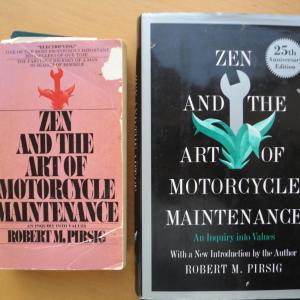Large parts of this post are taken up with two subjects:
-
The notion (due to Collingwood) of criteriological sciences, logic being one of them.
-
Gödel’s theorems of completeness and incompleteness, as examples of results in the science of logic.
Like the most recent in the current spate of mathematics posts, the present one has arisen from material originally drafted for the first post in this series.
In that post, I defined mathematics as the science whose findings are proved by deduction. This definition does not say what mathematics is about. We can say however what logic is about: it is about mathematics quâ deduction, and more generally about reasoning as such. This makes logic a criteriological science, because logic seeks, examines, clarifies and limits the criteria whereby we can make deductions. As examples of this activity, Gödel’s theorems are, in a crude sense to be refined below, that
-
everything true in all possible mathematical worlds can be deduced;
-
some things true in the world of numbers can never be deduced;
-
the latter theorem is one of those things.






